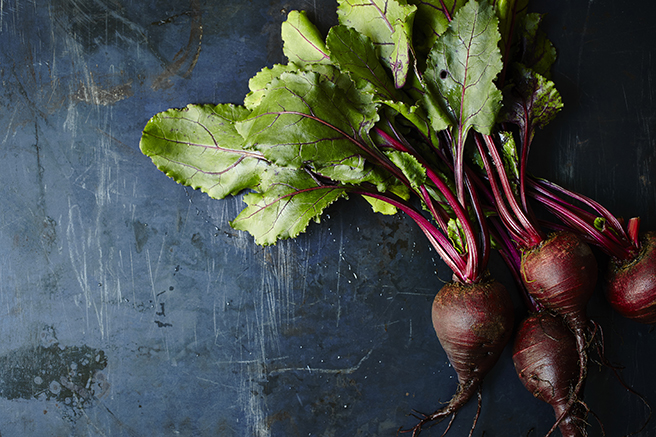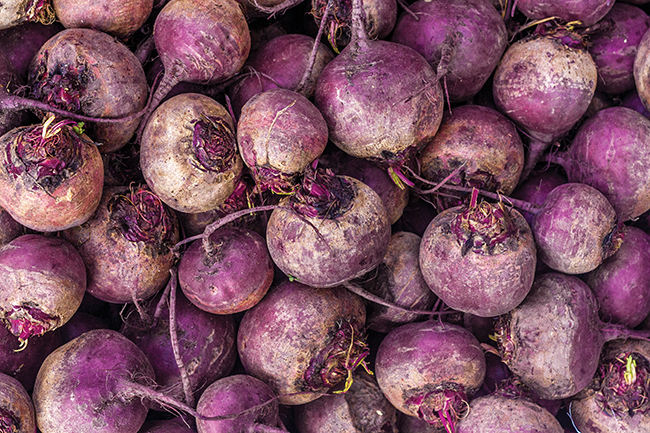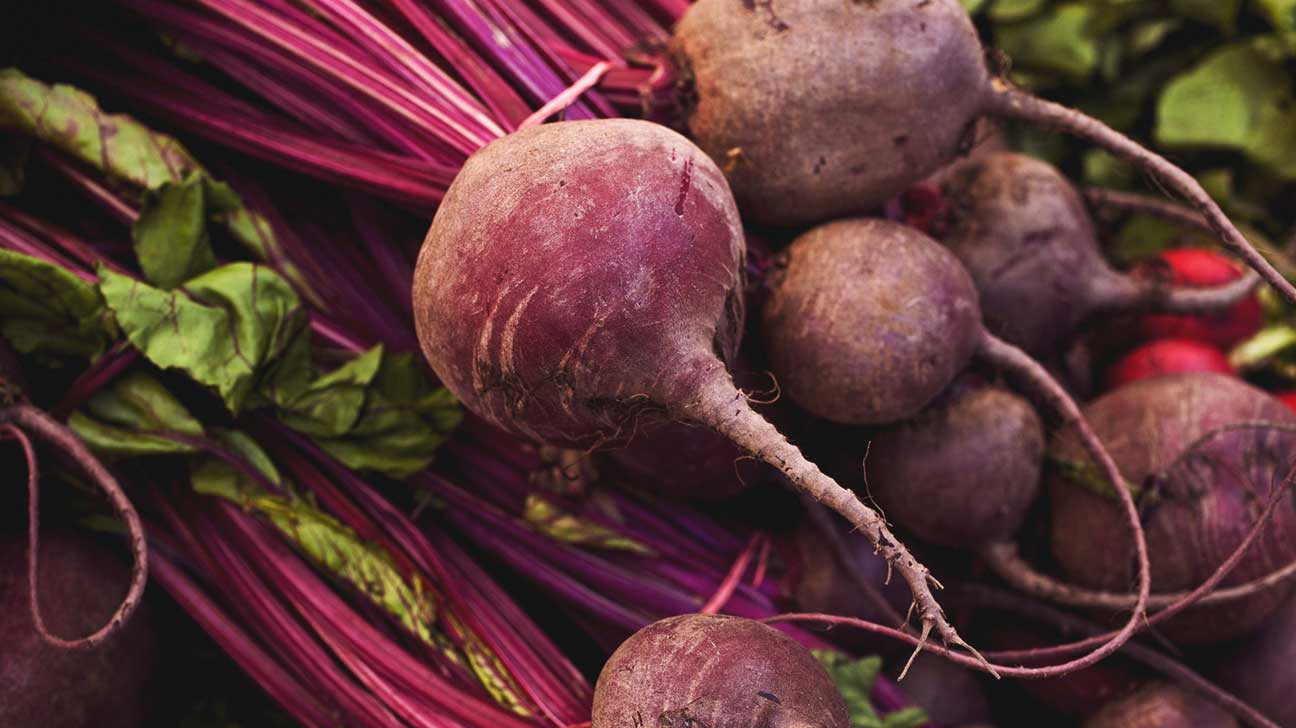As superfoods go the humble beetroot seems to tick all the boxes when it comes to fuelling up…

New research has identified a closer link between beetroot and fitness performance than previously thought. Scientific evidence reveals that:
- Beetroot increases our capacity for short bursts of intense activity.
- Beetroot minimises muscle soreness after exercise.
- Its unique combination of nutrients gives the greatest lift to those who need it most.
Training principles
Alongside emerging evidence that high-impact interval training, or HIIT, reverses ageing at a cellular level, the new findings have potentially life-changing implications for anyone seeking to improve their fitness.
Dr Tom Clifford, a scientist at Newcastle University, is one of the experts and authors unravelling the mechanisms and plant chemicals which make beetroot so beneficial, and he explains: “The nitrate in beetroot seems to be particularly beneficial for the fast-twitch muscle fibres we use for short bursts of rapid movement, as we do during HIIT (High Intensity Interval Training) and competitive team sports. What’s also interesting is that recreational athletes see bigger benefits from consuming beetroot than those who are at elite levels. In other words, beetroot seem to give the biggest boost to those who need it most.” His research shows beetroot also enhances recovery and minimises muscle soreness. “Potentially this could also be helpful to people returning to sport after an injury, or trying to improve their fitness levels.”

Personal trainer and founder of Pop Up Fitness, Olivia Cooney, says: “When you are starting a new work-out regime, or stepping up to something more strenuous like HIIT, it’s really important to stay motivated, and make the most of anything which lifts performance and reduces muscle soreness afterwards. That’s why beetroot is brilliant. Adding beetroot to your diet makes sense if you want to get the most out of your work-out and support post-exercise muscle recovery. You can even buy pre-cooked beetroot infused with fabulous flavours like chilli, balsamic honey and ginger, and juniper and berry — so you don’t have to be a celebrity chef or serious foodie to come up with scrumptious ways of using them.”
Dr Clifford says: “It is likely that we are seeing some synergistic effects — where a variety of nutrients in beetroot work together and become more beneficial in combination.”
They include:
Nitrate
Nitrate – which our bodies convert into nitric oxide, is just one of a number of nutrients in beetroot which is likely to fuel fitness. It has a regulatory role in respiration, immune function, blood pressure, and muscle contraction and nitrate supplementation has been shown to enhance oxygen uptake, exercise efficiency and stamina and stalls muscle depletion of phosphocreatine, a body chemical which fuels short bursts of activity.
Betalains
The pigments which give beetroot its distinctive colour have potent antioxidant, anti-inflammatory and chemo-protective properties.
Iron
Iron is the building block for the oxygen transporter, haemoglobin, but low levels are common and women who work out are at greatest risk of deficiency.
Anti-oxidants
Anti-oxidants may be a factor. High intensity exercise increases levels of free radicals known as reactive oxygen species. Dr Clifford says: “This is probably a factor in subsequent muscle damage.”
Polyphenols
Polyphenols are health-enhancing plant compounds which often have anti-inflammatory activity. One of a number found in beetroot is quercetin, which is also a potent antioxidant. Dr Clifford says: “The amount of quercetin in beetroot is tiny, but as is often the case, quercetin is more bioavailable when it is found in combination with other antioxidants, such as vitamin C — and beetroot is also a good source of vitamin C.”

Magnesium
Magnesium fuels more than 300 biochemical reactions in the body, including many which regulate blood pressure, muscle and nerve function. Higher blood levels have been linked to better muscle performance, flexibility and strength.
Potassium
Potassium is important for muscle cell function and potassium depletion is a factor in muscle fatigue and is likely to be a driver for pain and degenerative changes associated with prolonged exercise.
So, whether you work-out regularly, want to do more, or want a simple dietary tweak that can deliver real health benefits, you can’t beat beetroot.
Dr Clifford says: “We still have a lot to learn about the way the different nutrients in beetroot work together, and why this humble vegetable seems to deliver so many health benefits, but in the meantime it makes sense to make sure beetroot is on the menu. If someone who isn’t at peak fitness combines exercise and an increased intake of beetroot the evidence suggests they might be able to work-out for longer, and suffer less muscle strain afterwards.”
And Olivia says: “That really is a winning double, because increasing activity levels builds stamina and strength, and releases all sorts of feel-good body chemicals like endorphins — and anything which reduces the risk of muscle soreness and supports muscle repair will help maintain momentum.
“With beetroots becoming more widely available, and so many great beetroot recipes there is really no excuse for not hitting the beet.”
